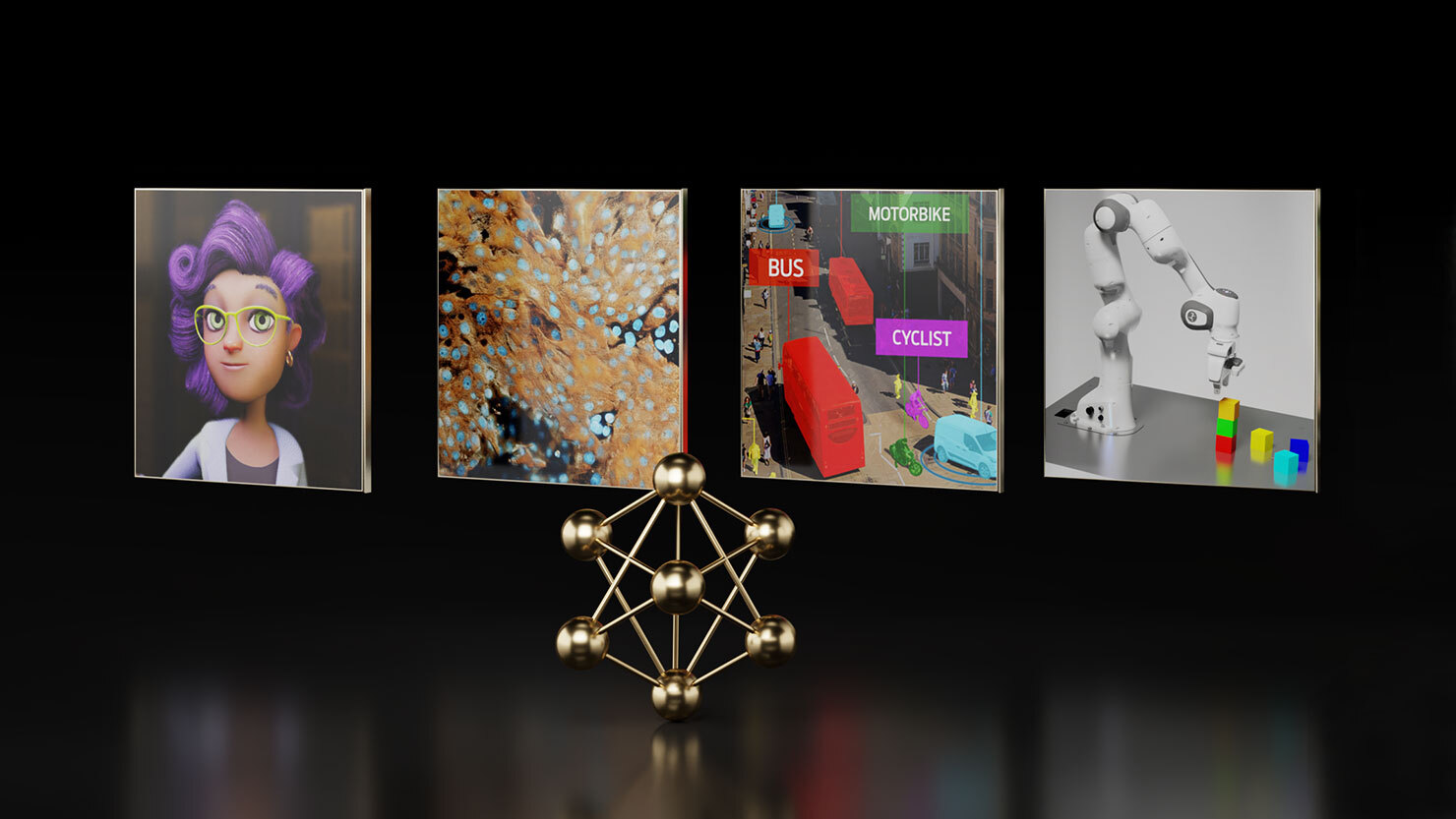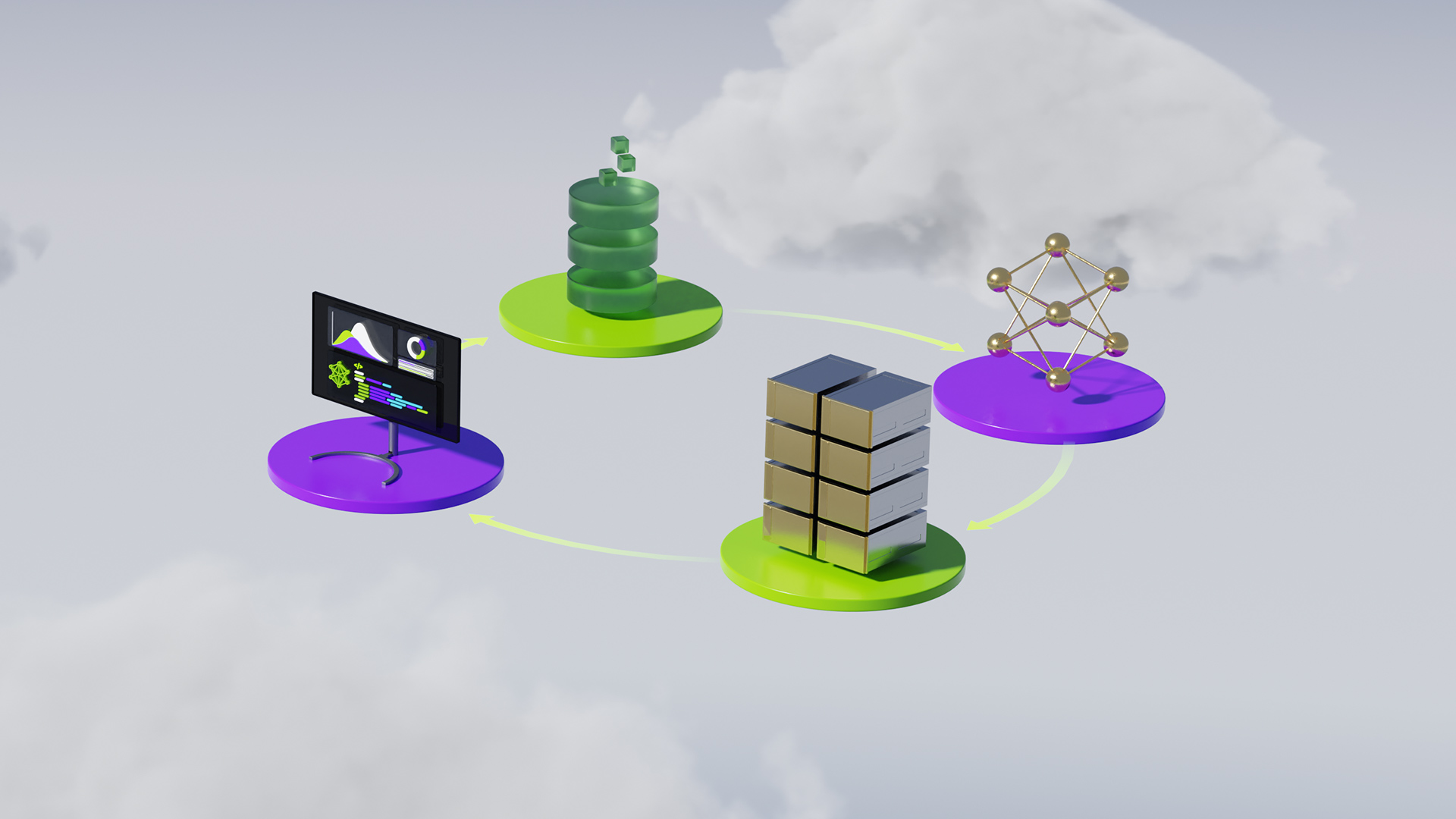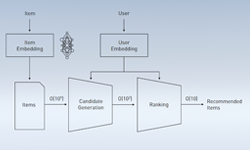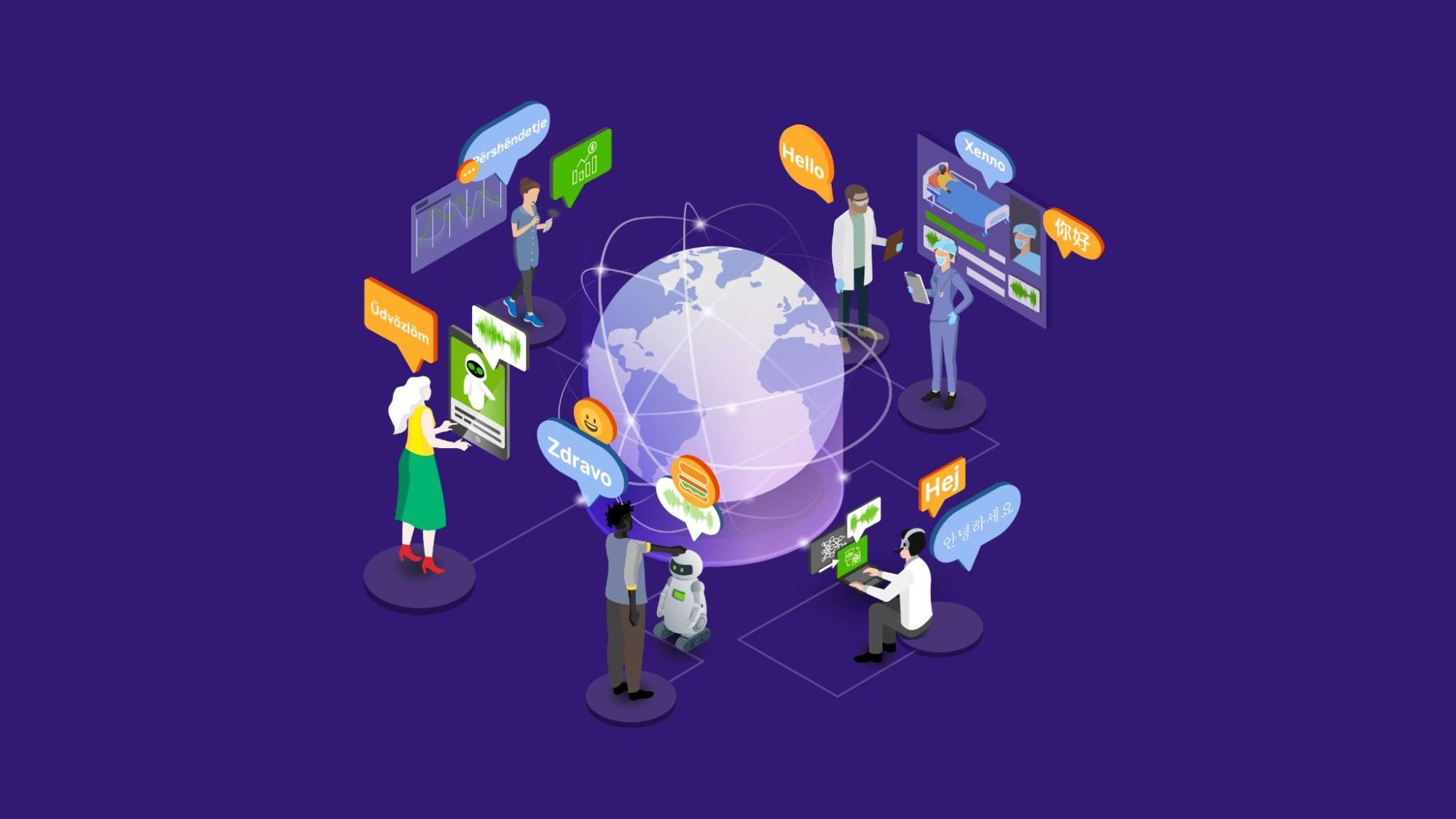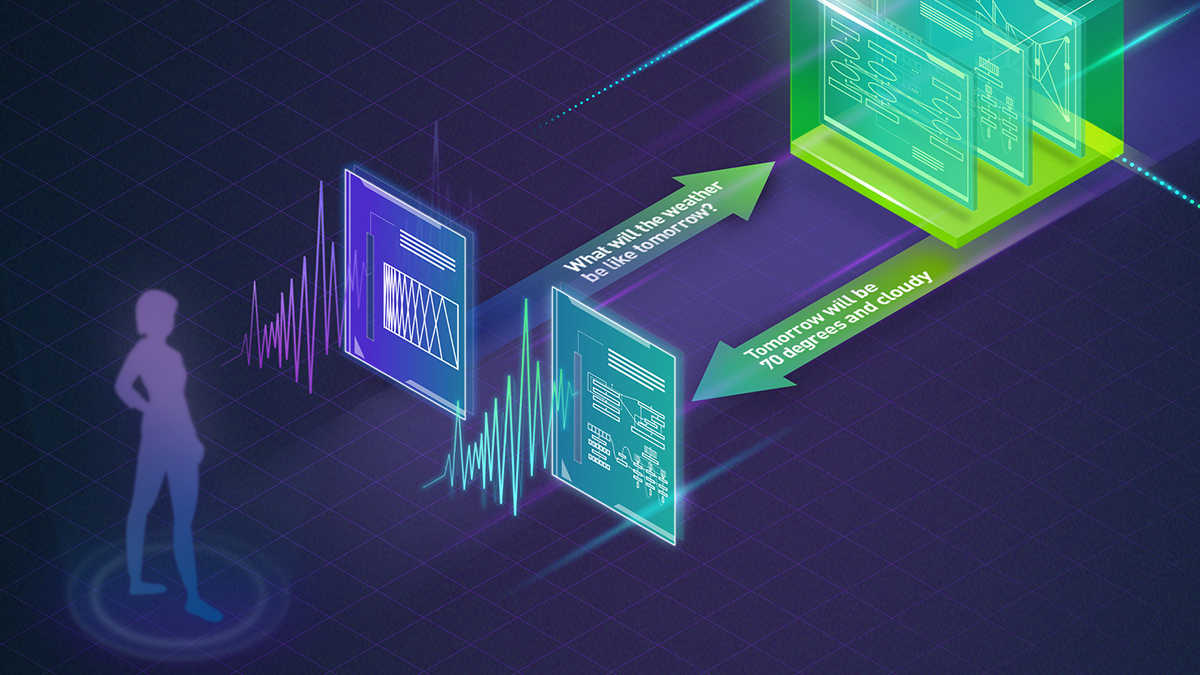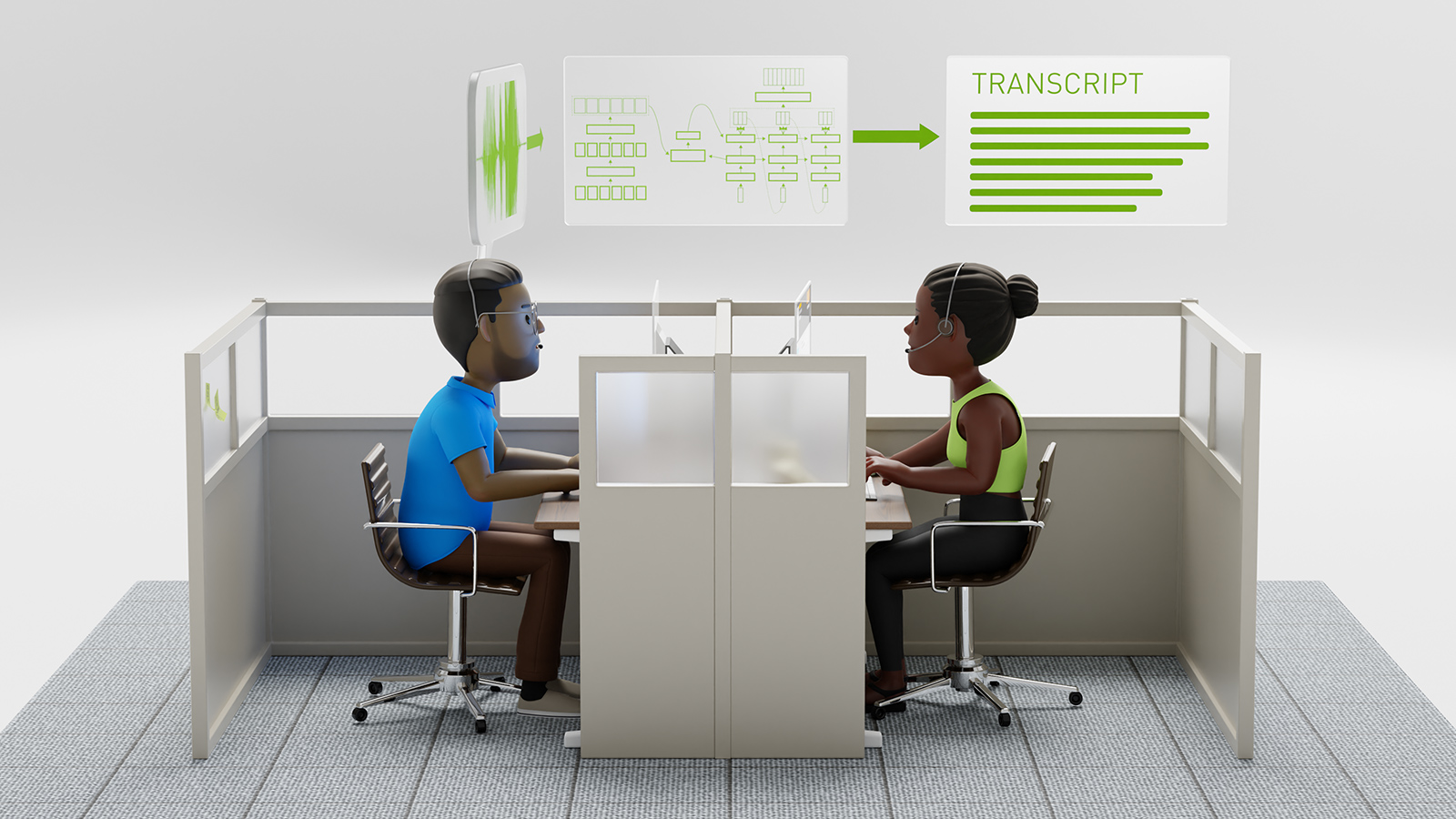NVIDIA showed how AI workflows can be leveraged to help you accelerate the development of AI solutions to address a range of use cases at NVIDIA GTC 2023.
AI workflows are cloud-native, packaged reference examples showing how NVIDIA AI frameworks can be used to efficiently build AI solutions such as intelligent virtual assistants, digital fingerprinting for cybersecurity, product recommendations, and more. AI workflows may include pretrained models, training and inference pipelines, Python code, and Helm charts, providing a jump start for developers to accelerate the path to delivering AI outcomes.
For more information about the latest NVIDIA breakthroughs, watch the keynote from CEO Jensen Huang.
Next item prediction AI workflow for personalized product recommendations
The NVIDIA next item prediction AI workflow is designed to help companies build effective, personalized recommendations using little to no user data.
The workflow contains the following features:
- Data preprocessing with NVIDIA Merlin
- NVIDIA Triton Inference Server with NVIDIA Merlin systems
- Helm charts for cloud-native deployment
- A reference solution for deploying in production, including components for authentication, logging, and monitoring
Predict what’s next with increased accuracy with the next item prediction AI workflow and try it on NVIDIA LaunchPad.
Add these GTC 2023 sessions to your calendar:
Route optimization AI workflow for minimizing vehicle routing inefficiencies
The NVIDIA route optimization AI workflow is a packaged solution for increasing efficiency, cost-effectiveness, and the capability to adapt in near real-time to dynamic constraints.
The workflow demonstrates how to use NVIDIA cuOpt to minimize vehicle routing inefficiencies by finding the most optimal route for a fleet of vehicles making deliveries, pickups, dispatching jobs, and more.
The workflow contains the following features:
- A packaged cloud-native NVIDIA cuOpt solver pipeline
- Helm charts and Jupyter notebooks with sample Python code
- A reference solution for deploying in production, including components for authentication, logging, and monitoring
Learn more about the route optimization AI workflow.
Add these GTC sessions to your calendar:
Speech AI workflows for large-scale deployments
Exciting updates to NVIDIA Riva help accelerate the development and deployment of audio transcription and intelligent virtual assistant solutions on any cloud Kubernetes distribution.
Developers and AI/ML practitioners can also use NVIDIA Riva to build and deploy any conversational AI pipeline that requires speech and translation AI deployed in the cloud, on-premises, at the edge, or embedded.
Here are the new speech AI workflows:
- Audio transcription AI workflow: Quickly build and deploy customized audio transcription pipelines using NVIDIA Riva automatic speech recognition (ASR) for recognizing human speech.
- Intelligent virtual assistant AI workflow: Efficiently customize, build, and deploy intelligent virtual assistant pipelines using NVIDIA Riva. Riva ASR recognizes human speech for domain-specific vocabulary and Riva text-to-speech (TTS) delivers responses with an engaging AI-synthesized voice.
Highlights of the new workflows include the following:
- ASR model training to achieve the best possible real-time accuracy.
- NVIDIA Riva pretrained TTS models with out-of-the-box professional English female and male voices.
- Packaged models, Helm charts, Jupyter notebooks, and documentation for fast, flexible deployments.
- Integrated authentication, monitoring, reporting, and load-balancing microservices for seamless production scaling.
NVIDIA collaborates with Deloitte, HPE, Infosys, Interactions, and Quantiphi to enable faster deployment of customized speech-AI-based applications at a lower cost.
Become familiar with the audio transcription AI workflow, intelligent virtual assistant AI workflow, and NVIDIA Riva, and try them for free on LaunchPad.
See the Speech AI Developer Day sessions and add them and the following GTC sessions to your calendar:
- Transforming Customer Service with Speech AI Applications
- The Future of Customer Service: How Speech AI is Changing the Game
- Insights from Industry Experts: Speech AI for Impactful Contact Centers
Digital fingerprinting detects cyber-threats faster
Updates to NVIDIA Morpheus make the digital fingerprinting cybersecurity workflow easier to train, deploy, and manage. With the NVIDIA digital fingerprinting AI workflow, you can rapidly get started with building AI models and pipelines to support real-time threat detection at scale. Or, you can leverage the NVIDIA Morpheus AI framework to build solutions that address other cybersecurity AI use cases.
Highlights include the following:
- Integrated training and feedback to better enable model training at a large scale for digital fingerprinting individual users, devices, accounts, and applications to detect threats faster.
- Non-linear pipeline support to train on data more efficiently within the Morpheus pipeline.
- New cybersecurity AI use case to detect spear phishing e-mails with generative AI.
Deloitte and NVIDIA are collaborating to bring AI-based cybersecurity to customers accelerated by NVIDIA Morpheus. With our combined solution, we can help organizations improve the effectiveness of advanced attack detections while achieving over 30–50% of cybersecurity cost savings per year compared to running AI models on general-purpose compute.
Learn more about the digital fingerprinting AI workflow, or try it for free on LaunchPad.
For more information, add these GTC sessions to your calendar:
- How to Deploy a Digital Fingerprinting Workflow to Detect and Stop Cyberattacks Faster
- Learn About New AI-Based Cybersecurity Use Cases and Capabilities
Three retail AI workflows to help the retail industry tackle its $100 billion shrink problem
To make it easier for you to quickly build and roll out applications designed to prevent theft, NVIDIA has created three retail AI workflows, built on its cloud-native Metropolis microservices.
The workflows can be used as no-code or low-code building blocks for loss-prevention applications. They come pretrained with images of the most-stolen products as well as software to plug into existing store applications for point-of-sale machines and object and product tracking across an entire store.
Here are the three retail AI workflows:
- NVIDIA retail loss prevention AI workflow: Based on a state-of-the-art few-shot learning technique developed by NVIDIA Research, this AI workflow is pretrained on hundreds of the most frequently stolen goods, including meat, alcohol, and laundry detergent. It can recognize them in varying sizes and shapes. Designed for active learning, the workflow identifies and captures any new products scanned by customers and associates during checkout. Retailers and independent software vendors can customize and rapidly index hundreds of thousands of store products for cross-camera and barcode-scan identification and provide intelligent alerts with actionable information.
- NVIDIA multi-camera tracking AI workflow: This AI workflow delivers multi-target, multi-camera capabilities that enable application developers to more easily create systems that track objects across multiple cameras throughout the store. The workflow tracks objects and store associates across cameras and maintains a unique ID for each object. Objects are tracked through visual embeddings or appearance, rather than personal biometric information, to maintain full shopper privacy.
- NVIDIA retail store analytics AI workflow: You can create end-to-end retail vision AI applications for store analytics using custom dashboards. Use and customize the workflow for a variety of analytics, including queue analytics, shopper occupancy, dwell time and trajectory, heat mapping of the customer journey, proximity, line crossing, and regions of interest. You can easily expand to additional use cases or customize to individual stores. Retailers can use this information to optimize staffing, enhance store merchandising and layout, and improve customer experience to maximize sales.
Sign up for early access to these retail AI workflows.
Add these GTC sessions to your calendar:
- Leveraging NVIDIA Pre-Trained Models to Build Loss-Prevention Applications Faster
- For EMEA time zones: Leveraging NVIDIA Pre-Trained Models to Build Loss Prevention Applications Faster, with Q&A from EMEA Region
- Solving Computer Vision Grand Challenges in One-Click
Register for GTC 2023 now to learn more about the latest updates to GPU-accelerated AI technologies.

